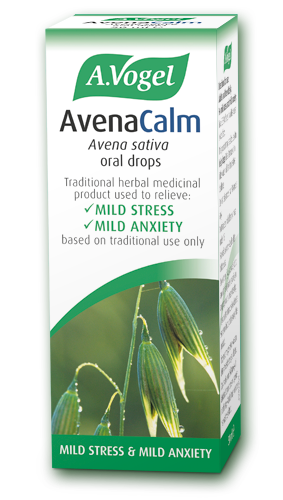What is public speaking anxiety?
Public speaking anxiety, often referred to as stage fright, is a type of social anxiety that stimulates intense fear in individuals in social situations where they are required to speak, present, or answer questions to other individuals. This fear is often accompanied by physical and emotional reactions, such as sweating, shaking, nervousness, and worry.
What causes public speaking anxiety?
Public speaking anxiety can be triggered by a number of causes:
• We don’t do it regularly and thus don’t develop the necessary skills to feel we have performed our best
• Being unprepared can add unnecessary stress and disorganisation to a presentation
• Not being familiar with the topic can affect our anxiety and confidence levels
• If we lack self-confidence it is extremely likely that we will struggle with public speaking because we are actively putting ourselves in a vulnerable position to be viewed and judged by others
• Past experiences. If we have suffered a traumatic public speaking experience it can stimulate anxiety and fear that the past will repeat again the next time we are in the same situation
• The fear of rejection. Public speaking can actually trigger our survival instincts; our subconscious brain is constantly on alert looking for threats to our survival. In prehistoric times being part of a group was essential to our survival and being rejected from the social group was a huge threat!1
• The fear of failure. The thought of failing at public speaking is enough to unnerve even the most confident of people! It is impossible to privately fail at public speaking because it is witnessed by those that you are presenting to.
In the big picture the cause of your public speaking anxiety doesn’t necessarily matter. Sometimes public speaking can’t be avoided – what matters is how you respond to the situation. Here are my top tips for facing public speaking anxiety.
9 tips for overcoming performance anxiety in public speaking
Minimise the anticipation
Ever had a sleepless night before a big presentation or interview? Have you been up all night compiling a huge list of what if scenarios? What if I forget? What if I say something wrong? What if they laugh? What if I fall in front of everyone?
You know the great thing about what if scenarios? They’re all in your head! They haven’t happened, and it is probable that they won’t happen. What if scenarios are a way for you to doubt yourself, to tell yourself you aren’t ready or good enough. The countless what if’s you come up with are a way of mentally preparing yourself for the events to come.

Now you can’t control the future, you don’t know what will happen at the presentation, you don’t know if it will go well or not. Your what if’s are just mental chatter and that is something that you CAN control! You have a choice, you can what if yourself into a nervous wreck, or you can choose to imagine what if’s that have a positive outcome. Each time your mind tries to throw you off your game with a negative what if respond with a visualisation of your success.
Everyone is on the same boat
Millions of people are affected by public speaking anxiety. According to Forbes, 10% of the population are positively terrified it, 10% love it and a whopping 80% of people feel anxious and nervous about public speaking!2 It is good to remember that, for most people, public speaking doesn’t come naturally. You are not alone in feeling nervous, look closely at other speakers and you’ll see the odd hand tremble or voice shake.
Make ‘em laugh!
Jokes are a great way to overcome fear of public speaking, it not only entertains your audience but it helps to make you feel more relaxed. Laughter helps to minimise our anxiety by strengthening our ability to confront fear.3 However, that being said, only make jokes if they are appropriate and relevant to what you are doing!
You are in control
As I mentioned above you are in control of your mental chatter, but you are also in control of the room. One of the tell-tale signs of nerves is rushed speech, so take your time and pause regularly. 
Herbal help
Try a herbal remedy like AvenaCalm to help to banish anxiety before public speaking. AvenaCalm is a licensed herbal remedy made from the green leafy parts of the oat Avena sativa and is used as a sleep aid or to help relieve mild stress and anxiety. Try taking AvenaCalm half an hour before presenting to help you relax.
Be prepared
If you aren’t great at improvising don’t improv your presentation! Give yourself plenty of time to rehearse. Don’t just read your presentation silently to yourself, start by using a script and presenting it to yourself in a mirror. You might feel silly at first, but it is a great way of rehearsing without presenting in front of somebody else.
Gradually start to come away from relying on your notes and make more eye contact with yourself. After you have practiced this a few times and feel comfortable replace your script with bullet point prompts so that if you forget parts of your presentation it is easier to pick it up again instead of scanning endless sheets of paper with long sentences. Ask a friend or family member to sit and listen to your presentation and allow them to give you pointers on eye contact, confidence, and speech flow.
Remember to breathe!
Physical symptoms of anxiety include rapid breathing and increased heart rate. Breathing deeply helps to lower the heart rate, calm nerves and focus the mind before publically speaking. When we forget to breathe properly our whole body is thrown into a tense state activating our fight-or-flight response. Breathing techniques help to relax our acute stress (fight-or-flight) response and instead activate our parasympathetic nervous system which is responsible for relaxation and digestion.
Fake it ‘til you make it!
Even if you don’t feel confident act it! Your body posture can influence not only the way others perceive you but also how you feel. Check out our blog on how body language can influence your mood for ways you can adjust your posture to feel more confident.
Similarly, the words that you use can also affect both the audience’s and your own perception of the presentation. Words can’t change reality itself, but they have the ability to alter perception.5 The topic of your presentation could require you to think carefully about your word choice – if your presentation is meant to be persuasive avoid words like ‘could’ and ‘possibly’ as they give off the impression of uncertainty.

Acknowledge the fear
And lastly, acknowledge your fear. Public speaking is hard! It is completely natural to feel anxious. Recognise that you are doing something difficult and be kind to yourself. Be passionate about what you are doing – your passion will help override the fear. Passion is infectious, if you enjoy what you are saying the audience will too.
1 http://www.speakingaboutpresenting.com/nervousness/fear-of-public-speaking-causes/
2 https://www.forbes.com/sites/nickmorgan/2011/03/30/why-we-fear-public-speaking-and-how-to-overcome-it/#7b7af33e460b
3 https://www.psychologytoday.com/blog/snow-white-doesnt-live-here-anymore/201304/laughing-the-scary-stuff-humor-and-fear
4 https://www.psychologytoday.com/blog/let-their-words-do-the-talking/201011/words-have-power








